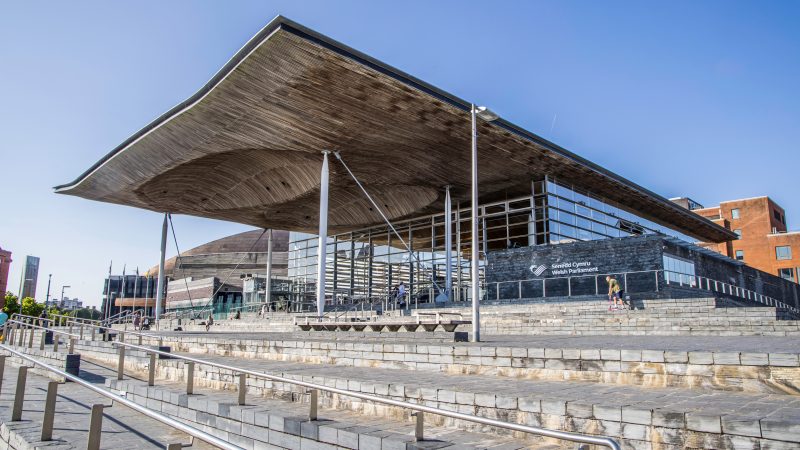
“No, I won’t be voting Labour. They don’t even know what a woman is.” The door slams in my face on a cold Saturday morning.
The life of a party activist is far from glamorous. Yet, through good times and bad, it remains a necessary part of political life. In this instance, deep in the heart of the South Wales Valleys—a rock-solid Labour area—our small band of activists gathers after a freezing canvassing session, sharing stories from the morning’s door-knocking.
There are moments of warmth: I spent time helping an elderly voter fix their car’s satnav, while another activist signed up a new party member. But underlying these exchanges was something unsettling—a sense that the political terrain beneath our feet is shifting.
Where once we would rush back to the board runner to record a near-certain Labour vote, we are now met with indifference and, in some cases, outright hostility. Gone are the days of confidently chalking up another “L5″—party parlance for a guaranteed Labour voter. Something deeper feels at play.
For some time now, a wave of political upheaval has been washing over Wales, beyond our immediate control. Even in the birthplace of 20th-century socialism, a long-standing Labour stronghold, that energy has faded. And if grassroots activists can feel it, so too can those in the upper echelons of Welsh politics.
Deer in the headlights
An ugly culture war has upended Welsh politics, and the way things have always been done is no more.
Welsh politics, by design, has long been more collegiate than Westminster’s cutthroat style. That tradition is now being tested, largely due to the divisive tactics of figures like Andrew RT Davies, the recently ousted leader of the Welsh Conservatives. His constant interventions – particularly in the toxic arena of culture war debates – have dragged Welsh political discourse into uncharted and unwelcome waters.
There was a time when Plaid Cymru, a nationalist party, openly considered cooperation with the unionist Conservatives. That seems almost unthinkable now. Since his unceremonious exit from leadership, Davies’ online presence has become even more incendiary, parroting the most reactionary talking points of the far-right.
From halal meat to grooming gangs, his fixation on the latter topic barely mentioned in Welsh political life before Elon Musk’s intervention earlier this year highlights the opportunism at play. The Welsh Conservatives, rather than setting the political agenda, have instead become slaves to the latest online outrage.
READ MORE: ‘Reform is attracting a coalition of pessimistic voters. Labour must be the party of action’
It didn’t have to be this way. But in their desperation to neutralise threats from Farage’s Reform Party and other right-wing disruptors, mainstream Conservative politicians have instead handed them the oxygen they crave. In the era of populist insurgency, the old guard finds itself outmanoeuvred and directionless.
For over two decades, Wales has been defined by a relatively stable political landscape, with Welsh Labour as the dominant force and an opposition that – while ideologically opposed – functioned within an accepted norm of democratic discourse. That fragile equilibrium is now crumbling, as polarisation grips Welsh politics just as it has in Westminster and elsewhere in the world.
Treading carefully
Welsh Labour has largely sought to manage the culture war rather than engage in it directly. In many ways, this is a necessity: Wales is more socially conservative than some of its Labour heartland counterparts, with an electorate that, in many places, closely resembles the ‘Red Wall’ seats just across the border in England.
What exactly happens if Welsh Labour fail in their addressing of these difficult issues? Loss of Senedd seats, certainly being one, but the main worry is Reform establish a real foothold in Labour heartland seats and possess a springboard to fight an insurgent Westminster campaign in the 2029 general election.
This delicate balancing act has been made significantly harder by figures like Andrew RT Davies. In his 18-year tenure in the Senedd, he never once raised the issue of grooming gangs until the culture war playbook dictated otherwise. His opportunistic pivot, combined with his cynical reversal on policies like the 20mph speed limit (which he initially supported), has led to opponents branding him a “Pound Shop Trump.”
The arrival of culture war politics in Wales is an unwelcome import. But the challenge now facing Welsh Labour is how to push back against this divisive rhetoric without alienating the voters it has long relied on, who sympathise with Davies and Reform’s anti-migrant dog whistles.
The age of the ‘very online’ politician
The reality is that most people in Wales are not ideologically obsessed with these issues. They care about the NHS, jobs, transport, and housing. As long as cynical actors stoke division for political gain, the culture war will remain an unwelcome distraction, and a headache for an incumbent Labour government.
There are of course consequences to failing to fight the culture war, or at least hoping it goes away. If Labour fails to resist the culture war shift, it may continue to lead to sliding poll ratings, but even so, the amplification of issues by the likes of Elon Musk online are making matters difficult to ignore.
READ MORE: Blue Labour ads, Blue Labour ideas: Inside the fightback against Reform
The question is how does a politically dominant, establishment party like Welsh Labour respond?
A difficult one, and the most difficult part will be locking into a brutal fight where the outcome is not certain, nor even necessarily politically advantageous. Though it seems unfathomable, Labour will fight the Senedd elections without mentioning the lightning rod issues of migration at all.
Migration matters
How it manages this all-important topic, in a part of the world where it is, according to polling, one of the most pervasive, will be giving Welsh Labour strategists sleepless nights. Should it be reframed as an economic issue? Should Labour counter Reform’s messaging head-on? Labour must address migration, but the question is how it should do so.
Labour’s path forward is at least clearer than the Conservatives’: focus on delivery, stick to bread-and-butter issues, and resist being dragged into distractions.
Labour must expose the opportunism of opponents and refuse to allow the toxic discourse of the far-right to define Welsh politics. Anything less risks ceding ground in a once alien battle that should never have reached our shores in the first place.
To be clear, we cannot afford to let opponents dictate the terms of debate. Labour must set out a principled yet pragmatic vision for migration – one that reassures anxious voters without pandering to the far-right.
In Wales, hesitation is not an option – Labour must lead, or risk losing ground to those who would define the debate for us, lest we see the door to power slam shut in our face.
For more from LabourList, subscribe to our daily newsletter roundup of all things Labour – and follow us on Bluesky, WhatsApp, Threads, X or Facebook .
- SHARE: If you have anything to share that we should be looking into or publishing about this story – or any other topic involving Labour– contact us (strictly anonymously if you wish) at [email protected].
- SUBSCRIBE: Sign up to LabourList’s morning email here for the best briefing on everything Labour, every weekday morning.
- DONATE: If you value our work, please chip in a few pounds a week and become one of our supporters, helping sustain and expand our coverage.
- PARTNER: If you or your organisation might be interested in partnering with us on sponsored events or projects, email [email protected].
- ADVERTISE: If your organisation would like to advertise or run sponsored pieces on LabourList‘s daily newsletter or website, contact our exclusive ad partners Total Politics at [email protected].





More from LabourList
Letters to the Editor – week ending 1 March 2026
‘I spent years telling workers the law couldn’t help them – that has changed’
Josh Simons resigns as Cabinet Office minister amid investigation